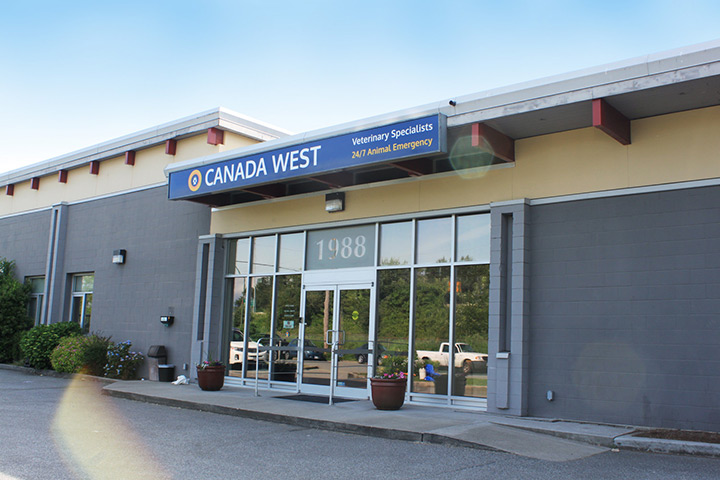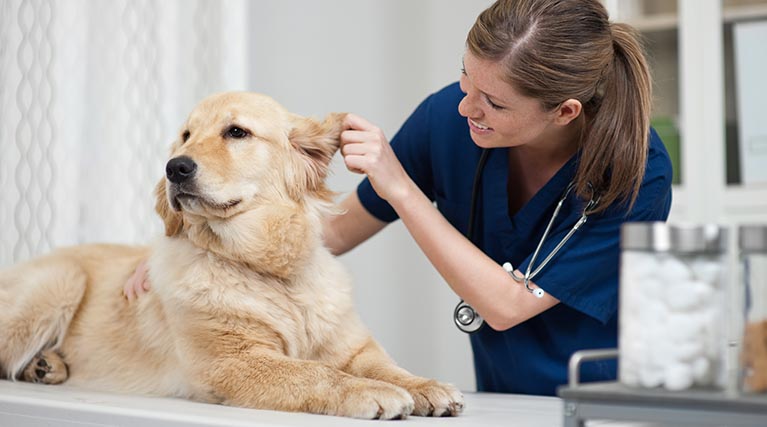
As veterinary assistants, they work closely with animals and assist veterinary staff in their duties. They might be required to clean kennels and perform examinations. They might be asked to provide samples or administer medications to animals.
There are many settings that vet assistants can work in, including a clinic, animal hospital, or laboratory. They might be required to work weekends and holidays, as well as part or full-time. They may be required to lift heavy objects and handle animals. They may also need to care for patients who are aggressive or very ill.
They may also be asked to perform certain procedures without the veterinarian being present. They may be asked to perform a dental exam, administer medication or take a diagnostic picture. They may be required to train agitated patients or to put an animal down.

The legal rights and responsibilities of a state's veterinary assistant are also essential. They may be asked to collect urine samples from patients, or sterilize equipment. They might be asked to answer any questions by pet owners. They may also be asked for appointments.
An average day for a veterinary assistant begins early in the morning when they have to be at work before any other employees. To remind clients of their appointments, the assistant will greet them and answer their phones. They may be assigned to answering calls made after hours at the office. They might be asked to clean kennels or collect samples.
Sometimes, veterinary assistants might be required to work nights or weekends. They might be required to care for overnight patients, clean their cages, and administer medication. They might also be required to perform feedings and check the patient's vitals. They might be asked for blood samples. The assistant's job may also include cleaning and maintaining sterile equipment to prevent postoperative infections. Other administrative tasks may be required.
The vet assistant works closely with the patients. They should have compassion for their patients, and be able to communicate well with others. They may be required to retrain a patient who is aggressive or agitated. They may be required to wash, disinfect, or exercise animals. They might be asked to help patients who are extremely ill or to manage aggressive animals.

A veterinary assistant may also be responsible for administrative tasks. They may be asked to prepare schedules and appointments for the day. They may also be required to greet and welcome customers as they enter the clinic. They may also be required to clean and disinfect the clinic. They might be asked to help prepare meals. They might be asked to prepare the animals for surgery, or assist in administering medication to patients.
FAQ
Three things you should think about before getting a cat.
These are the questions to ask before you buy a cat.
-
Are there any health issues in the cat?
-
Is it possible for the cat to eat all my food.
-
Do I want to have a cat because I like cats? Or do I just want one pet?
How to feed a pet.
Dogs and cats consume four times a daily amount of food. Breakfast consists of dry kibble. Lunch is usually some kind of meat like chicken and beef. Most dinners include some type of vegetable, such as broccoli or peas.
Cats may have different dietary preferences. Canadian foods should be part of their diet. These include tuna, salmon, sardines, and chicken.
Your pet might enjoy eating fruits or vegetables. You shouldn't give them too much. Cats can get sick from overeating.
Your pet shouldn't be allowed to drink straight out of the tap. Instead, give your pet water from a bowl.
You should ensure that your pet is getting enough exercise. Exercise keeps your pet's weight down. Exercise keeps him fit and healthy.
Make sure that you clean the dishes after feeding your pet. This will prevent your pet from inhaling harmful bacteria.
Brush your pet often. Brushing dead skin cells can cause infection.
Brush your pet at least twice a week. Use a soft bristle hairbrush. Do not use a wire brush. You can cause damage to your pet's teeth.
Always supervise your pet while he eats. He must chew his food correctly. He could choke on bones if he doesn't.
Keep your pet away from garbage cans. This could be dangerous for your pet's health.
Do not leave your pet unattended in enclosed spaces. This includes boats, hot tubs, cars, and boats.
How can you tell if your dog has fleas
If you notice your pet scratching at its fur, licking itself excessively, or looking dull and unkempt, then chances are he/she may have fleas.
Flea infestation could also be indicated by redness or scaly skin.
Your pet should be seen by a vet immediately for treatment.
What length of time should a dog spend indoors?
Dogs are naturally curious. Dogs require an outlet for their curiosity. They can become destructive if they don't have an outlet. This can lead them to become destructive and cause property damage, as well as injury to other people.
A leash should always be worn by dogs when they are outside. Dogs should be kept on a leash when they are outside to prevent them from getting into trouble and allow them to explore the environment safely.
You should keep your dog indoors for as long as possible. He will soon become bored and restless. He will be more interested in chewing furniture than other objects. His nails could grow too long and cause him to have health issues.
The best way to prevent these negative consequences is to let your dog run free at least once daily. Take your dog out for a run around the block, to the car, or to the park.
This will help him burn off energy and give him something constructive to do.
What are your responsibilities as a pet owner?
The pet owner should love his/her pet with all their heart. They must ensure that their pet has all the basic needs met, including shelter, water, and food.
They should also teach the pet how to behave. A pet owner should not abuse it or neglect it.
He should also be responsible enough take care of it, and clean up after himself.
Statistics
- It is estimated that the average cost per year of owning a cat or dog is about $1,000. (sspca.org)
- * Monthly costs are for a 1-year-old female mixed-breed dog and a male domestic shorthair cat less than a year old, respectively, in excellent health residing in Texas, with a $500 annual deductible, $5,000 annual benefit limit, and 90% reimbursement rate. (usnews.com)
- Reimbursement rates vary by insurer, but common rates range from 60% to 100% of your veterinary bill. (usnews.com)
- It's among a relatively few companies that provide policies with a full (100%) coverage option, meaning you are not responsible for any co-payment of bills. (money.com)
- A 5% affiliation discount may apply to individuals who belong to select military, law enforcement, and service animal training organizations that have a relationship with Nationwide. (usnews.com)
External Links
How To
The best method to teach your dog where he should urinate is through the use of a map.
Teaching your pet to use the bathroom correctly is crucial. It is also crucial to be able to teach them how to behave if they decide to go outside on their own. Here are some tips to help you teach your dog how to use the bathroom properly.
-
Start training early. Training early is key if you want to avoid accidents during playtime
-
Use food rewards. It will increase your chances of success if you reward your pet for each successful trip to a potty.
-
Keep treats away from the area where your pooch pees. You might cause your pooch to associate urine smell with his favorite treat.
-
Before letting your dog go, make sure that there aren't any other animals around. Dogs may be influenced by the behavior of others who relieve themselves.
-
Be patient. Your puppy might take a bit longer to figure things out than a fully grown adult.
-
Before you allow your dog to use the bathroom, be sure she has a good sniff of everything. She will be more successful if she is able to smell the toilet before entering.
-
When you are doing business, your dog should not be allowed to sit next to the toilet. This could cause confusion.
-
Once you're finished, wipe down the toilet bowl and the floor. These areas will be a reminder of what you should do in the future.
-
You must immediately clean up any mess. It is important to clean up any accidents quickly and thoroughly. You might have to give him another chance at relieving himself.